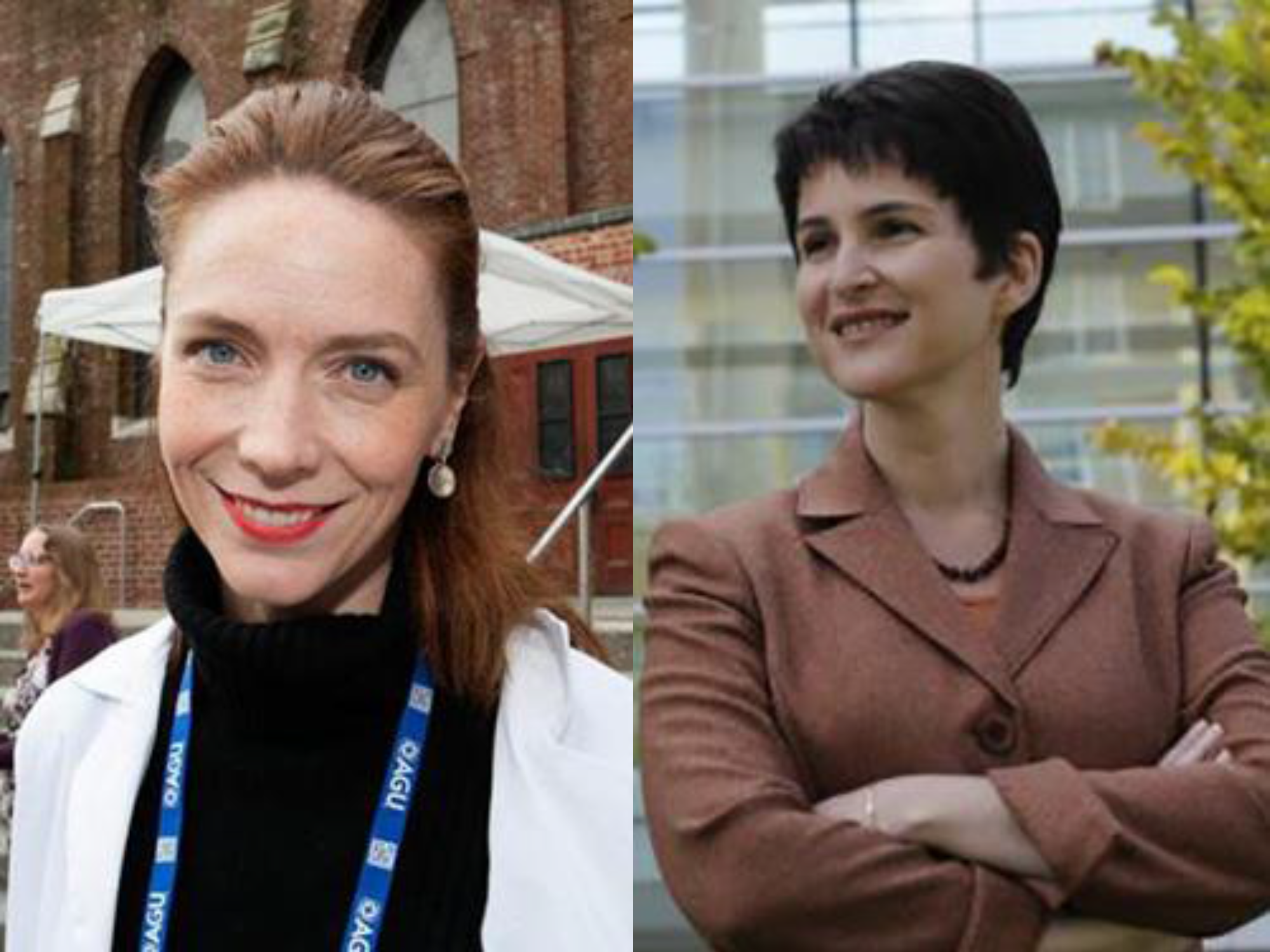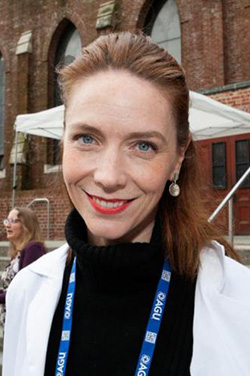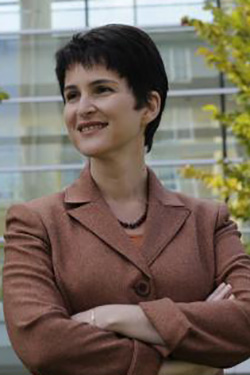For their groundbreaking accomplishments with the Internship and Co-op Carbon Reduction Challenge, Kim Cobb and Beril Toktay have been selected as the recipients of the 2018 Innovation in Co-curricular Education Award, administered by the Center for Teaching and Learning.
Kim Cobb is Georgia Power Chair and ADVANCE Professor in the College of Sciences. Beril Toktay is Brady Family Chair in Management, ADVANCE Professor, and Director of the Ray C. Anderson Center for Sustainable Business in the Scheller School of Business.
In 2008, Cobb launched the Carbon Reduction Challenge for an undergraduate course in the School of Earth and Atmospheric Sciences: EAS 3110, “Energy, the Environment, and Society.” In this course, she challenged student teams to develop projects during the semester that will yield real-world reductions in carbon dioxide emissions, if implemented.
The challenge took off. Over the years, winning projects have resulted in aggregate reductions of more than 2,000 metric tons of carbon dioxide emissions, equivalent to the annual carbon footprints of 100 Americans.
“A focus on innovation and experiential learning are key differentiators of Georgia Tech. The Carbon Reduction Challenge gives students a hands-on experience in innovating for sustainability."
In 2016, Toktay teamed up with Cobb to translate the challenge into a co-curricular offering for Georgia Tech students participating in co-ops and internships. The initiative was supported by a philanthropic donation from the Ray C. Anderson Foundation NextGen Fund and matching funds from the Scheller College of Business Dean’s Innovation Fund. They bet that students embedded within their partner organizations would have easy access to key decision-makers and data that would enable them to achieve even larger carbon dioxide reductions.
They were right. Launched in summer 2017, the co-op and internship version was immensely successful. In just one semester, student developed and implemented projects that will avoid more than 5,000 metric tons of carbon dioxide emissions over 10 years. That amount offsets the carbon footprints of at least 300 Americans for one year. Furthermore, projects will translate into reduced costs at their partner organizations amounting to tens of thousands of dollars over 10 years.
“When I first started the Carbon Reduction Challenge, I never dreamed that it would result in such massive impacts,” Cobb says. “I am excited to work with Beril to grow the challenge at Georgia Tech and beyond.”
Participating students acquired valuable, real-world experience. They learned to harness their creativity and navigate complex organizational hierarchies in companies large and small. Embraced by partner organizations, such as SunTrust Bank and Delta Airlines, the Internship and Co-op Carbon Reduction Challenge is helping to establish Georgia Tech as a regional leader in sustainability.
Students "are learning a life-long lesson: that saving carbon can save us money, while strengthening key partnerships."
One student says the challenge “made me more aware of the importance of being a steward for the environment.”
“A focus on innovation and experiential learning are key differentiators of Georgia Tech,” Toktay says. “The Carbon Reduction Challenge gives students a hands-on experience in innovating for sustainability. My hope is that it inspires them to continue to do that throughout their careers.”
Cobb and Toktay not only perform world-class research, but also inspire and equip the next generation of sustainability champions to solve society’s most pressing challenges. As a colleague puts it, “they are wonderful examples for our entire faculty.”
“As a climate scientist, I take great heart in seeing the next generation take such concrete, scalable action on climate solutions,” Cobb says. “They are learning a life-long lesson: that saving carbon can save us money, while strengthening key partnerships.”
Says Toktay: “I’m proud of the unique educational innovation this challenge represents: a collaboration of the Colleges of Business and Sciences and a format that empowers interns to pitch their ideas at the highest levels of the organization.”
For More Information Contact
A. Maureen Rouhi, Ph.D.
Director of Communications
College of Sciences





